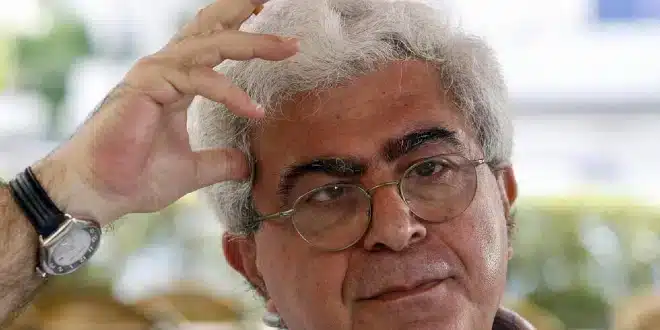Lebanese novelist Elias Khoury, a passionate advocate for the Palestinian cause and a prominent figure in Arab literature, passed away at the age of 76. Known for his strong political views and commitment to freedom of expression, Khoury authored numerous novels and essays that voiced his criticisms of Middle Eastern dictatorships and Israeli policies in Palestine.
Khoury had been battling illness for months, and despite frequent hospitalizations, he continued to write, often posting articles from his hospital bed. His work, which spanned five decades, made him a well-known intellectual across the Arab world. One of his most recent articles, published in July 2023, reflected on his experiences with pain and his admiration for the resilience of the Palestinian people.
Throughout his life, Khoury stood firmly in support of the Palestinian cause, criticizing Israel’s occupation and settlement policies. In an article published just days after the outbreak of the Israel-Hamas war on October 7, 2023, he described Gaza as “the biggest open-air prison,” highlighting the hardships faced by its people.
Born in Beirut in 1948, Khoury studied at the Lebanese University and later earned a PhD in social history from the University of Paris. He was actively involved in Lebanon’s civil war and sustained injuries during the conflict. In addition to his prolific writing career, Khoury edited the cultural sections of major Lebanese newspapers such as An-Nahar and As-Safir and served as the editor-in-chief of the Palestine Studies magazine.
Khoury’s literary works, which include “Little Mountain” and the widely acclaimed “Bab al-Shams” (Gate of the Sun), explored the struggles of Palestinian refugees and the Lebanese Civil War. His novels have been translated into several languages, including Hebrew, and have earned him international recognition. Khoury also taught at prestigious institutions like New York University, Columbia, Princeton, and the University of London.
Elias Khoury leaves behind a legacy of literature deeply intertwined with the region’s political and social history, offering profound insights into the human condition amid conflict and displacement.



Halleluyah!